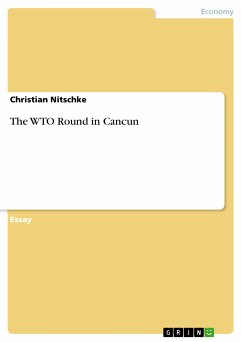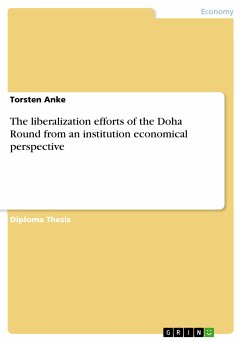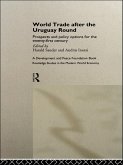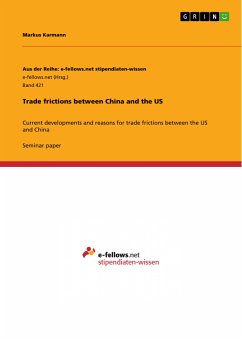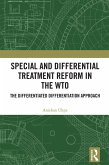Essay from the year 2003 in the subject Economics - International Economic Relations, grade: 2,0 (B), Stellenbosch Universitiy (Business School), language: English, abstract: The meeting of WTO Ministers in Cancun/Mexico ended without reaching a consensus in September 2003. But this is not the end of the WTO. The general advisory board of the World Trade Organization is called up for December 2003 to work with the negotiated text of the conference as a discussion basis. Key Issues for the 5 th WTO Round were Agriculture, especially market access and subsidies issues, and Development Issues - over three-quarters of WTO members are developing countries. While the aims of the Doha negotiating round had not changed, the political and economic conditio ns in which the negotiations were taking place had changed enormously in the last year. This included a slowdown in the world economy, currency instability, g eopolitical differences, outstanding trade disputes, and the proliferation of bilateral and regional trade agreements. An agreement on agriculture would have been a precond ition for success for the round of WTO negotiations. Issues were the dismantling of export subsidies, the reduction or removal of market access restrictions that block imports or exports of agrifood products, harmonization of regulations and the reduction of regulatory barriers with respect to phytosanitary standards and genetically- modified organisms, and a re-definition of antidumping to reflect real costs of production (before and after subsidies) in all countries. Another key point of Cancun was the General Agreement on Trade in Services - GATS. Before the round the developing countries called for the implementation of measures agreed under the last Uruguay round of negotiations: m arket access for agricultural and nonagricultural goods, as well as services, rules for governing special and differential treatment, procurement, and interdependence - the linkage of progress on trade negotiations with the resolution of other issues like agriculture and access to pharmaceuticals under TRIPS.
Dieser Download kann aus rechtlichen Gründen nur mit Rechnungsadresse in A, B, BG, CY, CZ, D, DK, EW, E, FIN, F, GR, HR, H, IRL, I, LT, L, LR, M, NL, PL, P, R, S, SLO, SK ausgeliefert werden.

